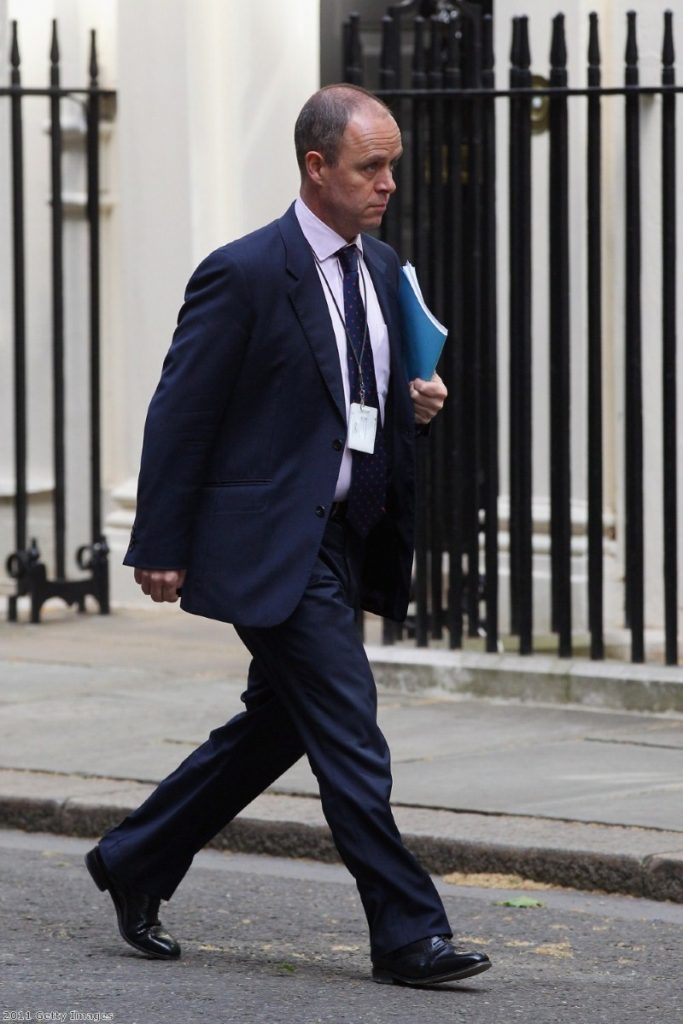Phone-hacking: Police failings leave MPs ‘looking down the rabbit hole’
By Ian Dunt Follow @IanDunt and Alex Stevenson Follow @alex__stevenson
Police officers accused of ignoring pivotal evidence in the phone-hacking row faced the scrutiny of MPs in an extraordinary committee session today.
Andy Hayman and Peter Clarke, who were in charge of the original phone-hacking investigation, joined John Yates, who took just eight hours to decide against re-opening the investigation in 2009, to answer questions from outraged MPs on the home affairs committee.
The responses of Mr Hayman in particular shocked MPs, prompting Tory MP Nicola Blackwood to comment: "I feel a little bit like I've fallen through the rabbit hole."


Asked if it was wise to meet up for informal dinners with News International executives while there was an ongoing investigation of the company, Mr Hayman admitted it "looked bad".
He also had to defend himself against MPs telling him it was an error of judgement to take up a job working for the Murdoch-owned Times as a columnist after he left the Met.
His informal approach to the session led Conservative MP Tory Lorraine Fullbrook to brand him "a dodgy geezer", while chairman Keith Vaz said he was "astonished".
Each man justified the police's failure to conduct a "thorough analysis" of three bin bags of evidence during the first police investigation, when two men were jailed for hacking a royal phone.
One of the men, Glenn Mulcaire, a private detective operating for the News of the World, had some of his notes seized. Those notes contained the details of thousands of people who may have been the victims of phone-hacking but police admitted they seriously misjudged the process of how to contact them and failed to coordinate properly with phone companies.
Mr Hayman and Mr Clarke insisted that, with terrorist attacks dominating events at the time, they were unable to spare the time or resources to the evidence. They also blamed News International for holding back information from them during the original investigation, leading bemused MPs to ask if they expected potential wrongdoers to be very useful in criminal investigations.
"Do you find it surprising that people involved in a criminal offence didn't want to cooperate with you?" Labour MP Bridget Phillipson asked sarcastically.
Mr Yates, who has long been mocked for deciding not to re-open the investigation following a Guardian expose in 2009 despite taking only eight hours to reach his decision, apologised for any hurt caused to the victims.
"Please do not take that as an admission that I in any way take responsibility," he added.
Mr Yates is under more scrutiny than arguably any other Scotland Yard representative. Yesterday, Labour MP Chris Bryant told the Commons that he had had repeatedly lied to parliament and should step down.
This afternoon, former Lib Dem leader Menzies Campbell also demanded his resignation.
But Mr Yates received a statement of support from Met commissioner Sir Paul Stephenson, who praised his head of counter-terrorism for never shying away from difficult cases.
"We need to give him credit for his courage and humility in acknowledging that if he knew then what he knows now, he would have taken different decisions," Sir Paul said.
"He currently undertakes one of the most difficult jobs in UK policing, and is doing an outstanding job leading our fight against terrorism. He has my full support and confidence, and that of our partners."
Sue Akers, who is in charge of current Operation Weeting, also attended the evidence session.
She said 500 people had written to ask if their phone had been hacked and revealed just 170 people had been contacted so far about phone-hacking.
"There's an awful lot of work to be done," she admitted.
The deputy assistant commissioner, who is leading 45 officers investigating recent allegations, acknowledged that confidence in the Met had been damaged by the phone-hacking scandal.
"I am aware from the amount of reporting that goes on that there must be people sitting on a lot of material," Ms Akers added, appealing for those with evidence to come forward.
She pledged to go "where the evidence leads us" and said regular contact had been established with two News International executives.
"When we started, all our dealings were through lawyers," she continued. "It was difficult."
She said a meeting had taken place where police and News International chiefs discussed "our very different interpretations of 'full cooperation'". Now, Ms Akers said, "we are experiencing an altogether different feel."

